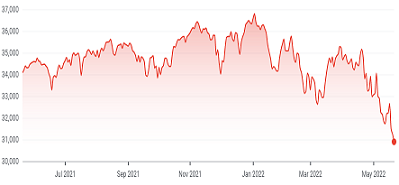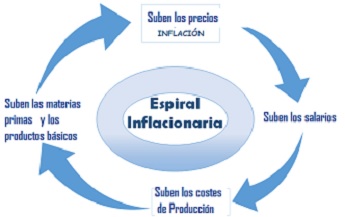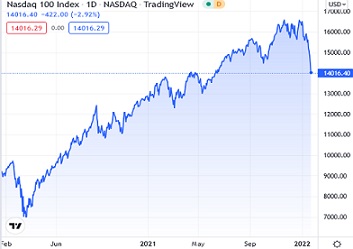Su industria está paralizada, sus exportaciones se han desplomado a niveles sin precedentes desde la época de la URSS y su economía parece debatirse en una frustrante agonía que entorpece, además, la capacidad de reactivación de un poderío militar que adolece de mucho equipo anticuado o en mal estado.
Sencillamente, no hay país en todo el planeta, por muy poderoso que sea, que pueda depender de una autarquía que lo sostenga aislado del mundo. La economía rusa se ha desgarrado súbitamente del mercado mundial. Hoy, los superyates rusos están siendo incautados y uno quedó varado en un puerto noruego cuando se negaron a suministrarle combustible (foto). Bienes raíces y otros intereses e inversiones en el extranjero están siendo confiscados. El sistema SWIFT de transacciones financieras internacionales ya no está disponible para varios bancos rusos que manejan el sistema financiero, incluido el Banco central de Rusia. Las reservas de moneda rusa en Nueva York, Frankfurt y Londres han sido confiscadas a pesar de que esta medida siempre se consideró una “opción nuclear” que nunca se implementaría.
quedó varado en un puerto noruego cuando se negaron a suministrarle combustible (foto). Bienes raíces y otros intereses e inversiones en el extranjero están siendo confiscados. El sistema SWIFT de transacciones financieras internacionales ya no está disponible para varios bancos rusos que manejan el sistema financiero, incluido el Banco central de Rusia. Las reservas de moneda rusa en Nueva York, Frankfurt y Londres han sido confiscadas a pesar de que esta medida siempre se consideró una “opción nuclear” que nunca se implementaría.
Aproximadamente 400 corporaciones internacionales han retirado sus operaciones de Rusia. Diversos bancos extranjeros han cesado sus operaciones en el país. Según un historiador de la Universidad de Europa Central, “estamos presenciando una desglobalización rápida y masiva sin precedentes en la historia y el total aislamiento de una gran economía”. En otras palabras, Rusia está cayendo abiertamente al abismo de la autarquía.
Por añadidura, está en marcha una “fuga de cerebros”, liderada por personas talentosas que prefieren la libertad en el mundo exterior a las nuevas normas reminiscentes de la era soviética. Incluso Anatoly Chubais, exjefe de gabinete de Boris Yeltsin y arquitecto de las reformas económicas postsoviéticas de Rusia, renunció a su puesto como enviado especial del Kremlin y abandonó el país debido a la invasión de Ucrania.
Como resultado, la mejor estimación disponible en este momento es que la economía rusa está en caída libre. En pocas semanas, Rusia, que había sido incluida como miembro del G-8, el grupo de las ocho economías industriales más grandes, ha quedado ahora excluida incluso del G-20, con lo cual ha dejado de pertenecer al primer mundo económico y financiero, y pronto podría entrar en una severa recesión y en una espiral descendente al subdesarrollo.
- Hits: 4303

 Todo el problema de la inflación se centra en la responsabilidad del gobierno en tres cuestiones fundamentales: 1) los impuestos; 2) la deuda; y, 3) el aumento del dinero en circulación.Tiene que ver también, aunque tangencialmente, con el aumento de los salarios que no esté justificado por un aumento de la producción o de la eficacia de los servicios.
Todo el problema de la inflación se centra en la responsabilidad del gobierno en tres cuestiones fundamentales: 1) los impuestos; 2) la deuda; y, 3) el aumento del dinero en circulación.Tiene que ver también, aunque tangencialmente, con el aumento de los salarios que no esté justificado por un aumento de la producción o de la eficacia de los servicios. En estos momentos el índice de NASDAQ 100 ha caído al nivel aproximado que ostentaba a mediados de febrero pasado y el Dow Jones (DJI) ha descendido a un nivel aproximado al de abril pasado. En el gráfico de NASDAQ se observa una recuperación estable hasta febrero de 2021. Es evidente la inestabilidad del alza subsiguiente, salpicada de tres caídas importantes hasta la que se viene produciendo desde noviembre. Los resultados de cada breve recuperación posterior corresponden al alza artificial provocada por la inyección de dinero y gastos presupuestarios excesivos.
En estos momentos el índice de NASDAQ 100 ha caído al nivel aproximado que ostentaba a mediados de febrero pasado y el Dow Jones (DJI) ha descendido a un nivel aproximado al de abril pasado. En el gráfico de NASDAQ se observa una recuperación estable hasta febrero de 2021. Es evidente la inestabilidad del alza subsiguiente, salpicada de tres caídas importantes hasta la que se viene produciendo desde noviembre. Los resultados de cada breve recuperación posterior corresponden al alza artificial provocada por la inyección de dinero y gastos presupuestarios excesivos. Lo que están haciendo los gobiernos del mundo y muchas iniciativas de caridad cristiana y de otras religiones es crear un síndrome de dependencia que anula la iniciativa individual y el esfuerzo de superación de las personas a las que, de hecho, se les está inculcando que la única salida de subsistencia que tienen a su disposición es la limosna. Esto no quiere decir que esos programas de gobierno y esas obras de caridad deban eliminarse en su totalidad, sino que deben limitarse a quienes por motivos físicos o mentales no tienen una oportunidad mínima de superarse y abrirse camino en la vida. O también deben existir para brindar asistencia temporal a los damnificados de catástrofes, accidentes o un golpe negativo de la suerte, hasta que se les pueda encaminar al mercado del trabajo o a cualquier iniciativa de libre empresa.
Lo que están haciendo los gobiernos del mundo y muchas iniciativas de caridad cristiana y de otras religiones es crear un síndrome de dependencia que anula la iniciativa individual y el esfuerzo de superación de las personas a las que, de hecho, se les está inculcando que la única salida de subsistencia que tienen a su disposición es la limosna. Esto no quiere decir que esos programas de gobierno y esas obras de caridad deban eliminarse en su totalidad, sino que deben limitarse a quienes por motivos físicos o mentales no tienen una oportunidad mínima de superarse y abrirse camino en la vida. O también deben existir para brindar asistencia temporal a los damnificados de catástrofes, accidentes o un golpe negativo de la suerte, hasta que se les pueda encaminar al mercado del trabajo o a cualquier iniciativa de libre empresa.